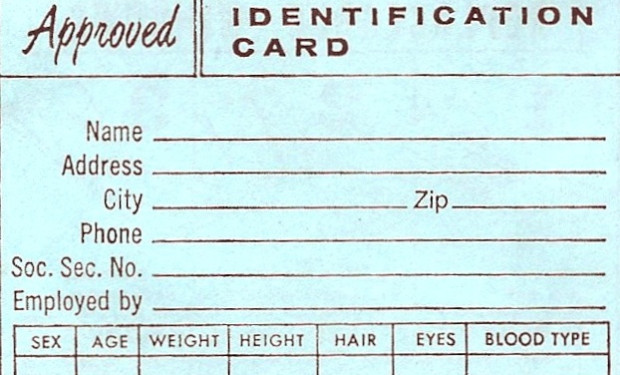Let’s See Some ID
North Carolina's new voter ID requirement has both support and opposition from precedent and policy.
This article is the third in a three-part series on North Carolina’s new voter ID law. You can read Part One and Part Two here.
Under North Carolina’s new voting law, voters will be required to produce photo identification before they are able to cast a ballot. The list of documents that may be presented at the polls to prove identity includes a driver license, a passport, or a military identification card.
Governor Pat McCrory recently argued that North Carolinians are required to produce identification in order to participate in activities such as flying and even buying Sudafed, therefore it is logical that an activity as important as voting should receive similar protections against fraud. Opponents of the photo identification provision are concerned that the law disenfranchises individuals who do not have driver licenses because they are unable to afford cars. The list of acceptable documents could be expanded to include more forms of identification, but a provision of the law allows individuals to present a special identification card that is available to those individuals without driver licenses.
In the 2008 case of Crawford v. Marion County Election Board, the United States Supreme Court concluded that a voter ID requirement enacted in Indiana was constitutional. In that case, the defendants were unable to show any evidence of voter fraud; however, the plaintiffs were unable to show that the law would prevent registered voters from voting. The Court held that the plaintiffs had not met the required burden of proof. In its ruling, the Supreme Court expressed support for “evenhanded restrictions that protect the integrity and reliability of the electoral process itself.” The Supreme Court likely considered the Indiana law evenhanded because it contained provisions whereby a voter who could not produce identification on Election Day could cast a provisional ballot, contingent upon the voter producing the required documents within ten days. Like Indiana’s law, North Carolina’s voter identification law also allows a voter who is unable to present photographic identification to cast a provisional ballot.
As a lawsuit dealing with Wisconsin’s voter ID law demonstrated, in order for voting restrictions to be deemed by a court to have been motivated by considerations other than race, there must be evidence of voter fraud that the restrictions are designed to mitigate. Without a showing that the Wisconsin law was motivated by a desire to deter voter fraud and in light of the impact that the law would have on minority voters, Judge Lynn S. Adelman of the U.S. District Court for the Eastern District of Wisconsin determined that the law disproportionately harmed minorities.
Sufficient evidence of fraud might be present in the case of the North Carolina voting law. A study conducted by the North Carolina Board of Elections found that in the 2012 election, 35,000 people voted in North Carolina who had the same first name, last name, and birthday as registered voters in another state. The report indicates that some of those voters cast ballots in both localities. Some of these instances of duplication may be caused by circumstances other than fraud, such as two individuals sharing the same name and birthday. Unlike the circumstances surrounding Wisconsin’s voter law, however, these statistics may be indicative of voter fraud sufficient to justify the voter identification at the ballots.
Since the new rules will not take effect until 2016, voters will not be required to show identification in the upcoming election. Rather, voters will only be asked if they have an ID. Even though voters will not be required to answer affirmatively or show the ID before voting, concern remains that the question alone will scare away some voters. In the midterm elections that have been held this year, there has been no indication thus far that this new policy has reduced voter participation.





